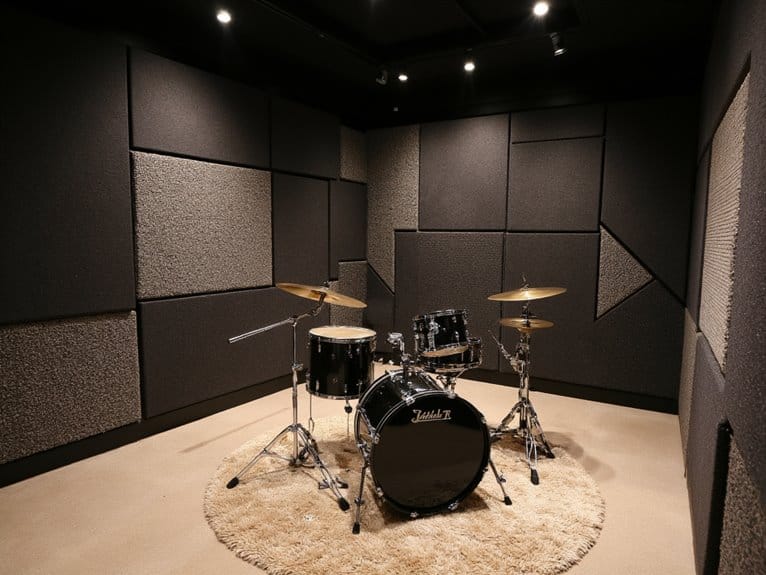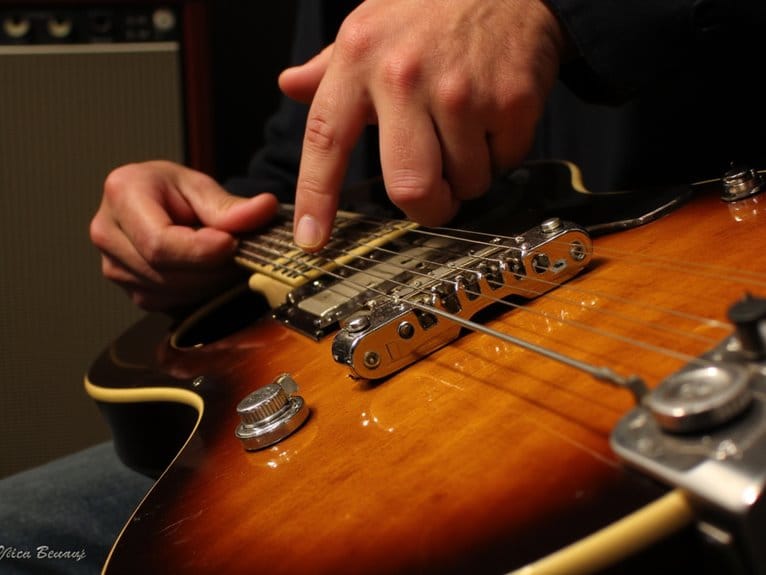Increase Your Drumming Speed: How Drummers Can Maximize Their Practice Time | 30-Minute Practice Sessions Guide
The ideal daily practice duration for drumming varies depending on individual goals, schedules, and learning styles. For beginners, 20-30 minute practice sessions focusing on technique-building exercises and simple songs/grooves can facilitate focused practice and build confidence. Intermediate drummers can benefit from structured practice sessions targeting specific areas of improvement. Advanced techniques like polyrhythmic exercises and high-intensity interval training can maximize practice time. Effective time management, prioritizing goals, and minimizing distractions are key to making the most of your practice time. Discover how to tailor your practice sessions to your unique needs and accelerate your progress.
We are supported by our audience. When you purchase through links on our site, we may earn an affiliate commission, at no extra cost for you. Learn more.
Setting Realistic Practice Goals
Setting realistic practice goals is essential to maintaining motivation and making consistent progress, as it enables drummers to create a sense of accomplishment and direction in their daily practice routine. A well-defined practice mindset allows drummers to focus on specific areas of improvement, allocating time and energy effectively. Goal prioritization is vital in this process, as it helps drummers identify and tackle the most critical skills or techniques. By setting achievable goals, drummers can break down complex tasks into manageable chunks, track their progress, and adjust their practice accordingly. A realistic goal-oriented approach fosters a productive practice mindset, leading to steady improvement and a deeper connection with the instrument.
Factors Affecting Practice Time
As drummers establish a goal-oriented approach, they must also acknowledge that their practice time is influenced by various factors, including their individual schedules, personal commitments, and learning styles. A drummer's personal schedule, for instance, may only permit 30-minute practice sessions, while others may have more flexible schedules allowing for longer practice times. Additionally, drumming style is another significant factor affecting practice time. For example, jazz drummers may require more time to perfect complex polyrhythms, whereas rock drummers may focus on developing powerful grooves. By recognizing these factors, drummers can tailor their practice sessions to suit their unique needs, ensuring they make the most of their limited time.
Ideal Practice Sessions for Beginners
When crafting ideal practice sessions, beginners should break down their time into manageable chunks, focusing on technique-building exercises that address specific skills, such as basic rudiments, timekeeping, and coordination. This approach allows for a thorough development of drumming fundamentals. A 20-30 minute practice session is ideal, divided into 5-10 minute segments. Start with warm-ups, followed by exercises targeting specific skills, and conclude with simple songs or grooves to apply new skills. Consistency is key, so aim to practice at the same time daily to foster habit formation. By doing so, beginners can establish a solid foundation, build confidence, and progress steadily in their drumming journey.
Intermediate Drummers' Practice Routines
Intermediate drummers, having established a solid foundation, can now focus on refining their skills by incorporating more complex exercises and songs into their practice routines. At this stage, it's essential to develop a practice mindset that targets specific areas of improvement. Investigate different drumming styles, such as jazz, rock, or funk, to broaden your musical understanding and technique. Allocate time to practice challenging exercises, including polyrhythms, odd time signatures, and intricate fills. Set goals for each session and focus on achieving them. Aim to practice for 30-45 minutes, taking regular breaks to avoid fatigue and maintain focus. By adopting a structured approach, intermediate drummers can accelerate their progress and take their skills to the next level.
Advanced Techniques for Short Sessions
Even with a busy schedule, advanced drummers can still make significant progress by incorporating high-intensity, focused exercises into their daily practice routine. By maximizing their practice time, advanced drummers can refine their skills and take their playing to the next level. Here are some advanced techniques to incorporate into short sessions:
- Polyrhythmic exercises: Practice playing multiple rhythms simultaneously to improve coordination and independence.
- Efficient warm-ups: Use targeted exercises to warm up specific muscle groups, reducing overall practice time.
- High-intensity interval training: Alternate between high-intensity playing and brief periods of rest to build endurance.
- Micro-practice: Focus on small, specific skills or techniques, such as finger independence or heel-toe technique, to make significant progress in a short amount of time.
Making the Most of Your Time
By incorporating these advanced techniques into their daily routine, drummers can optimize their practice sessions to achieve maximum results in minimal time. Effective time management is vital to making the most of their practice time. Drummers should prioritize their goals, focusing on the most important skills or songs they want to master. This enables them to allocate their time wisely, ensuring they make progress in each session. Efficient practice also involves minimizing distractions, taking regular breaks, and maintaining a consistent practice schedule. By adopting these strategies, drummers can maximize their productivity, achieving more in less time and taking their skills to the next level.




